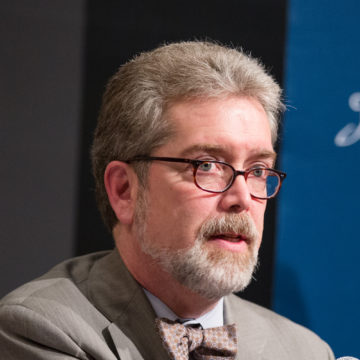
Matthew J. Franck is Contributing Editor of Public Discourse. He is also a retired Lecturer in Politics at Princeton University, Senior Fellow at the Witherspoon Institute, and Professor Emeritus of Political Science at Radford University, where he chaired the department and taught courses in political philosophy, constitutional law, and American politics.
Franck has written, edited, or contributed to books published by the University Press of Kansas, Lexington Books, Oxford University Press, and Cambridge University Press, and has published articles and reviews in American Political Thought, the Review of Politics, the Journal of Church and State, the Catholic Social Science Review, National Affairs, The New Atlantis, First Things, the Weekly Standard, Touchstone, the Claremont Review of Books, National Review, and Public Discourse. On Twitter he is @MatthewJFranck.
| Cookie | Duration | Description |
|---|---|---|
| cookielawinfo-checkbox-analytics | 11 months | This cookie is set by GDPR Cookie Consent plugin. The cookie is used to store the user consent for the cookies in the category "Analytics". |
| cookielawinfo-checkbox-functional | 11 months | The cookie is set by GDPR cookie consent to record the user consent for the cookies in the category "Functional". |
| cookielawinfo-checkbox-necessary | 11 months | This cookie is set by GDPR Cookie Consent plugin. The cookies is used to store the user consent for the cookies in the category "Necessary". |
| cookielawinfo-checkbox-others | 11 months | This cookie is set by GDPR Cookie Consent plugin. The cookie is used to store the user consent for the cookies in the category "Other. |
| cookielawinfo-checkbox-performance | 11 months | This cookie is set by GDPR Cookie Consent plugin. The cookie is used to store the user consent for the cookies in the category "Performance". |
| viewed_cookie_policy | 11 months | The cookie is set by the GDPR Cookie Consent plugin and is used to store whether or not user has consented to the use of cookies. It does not store any personal data. |